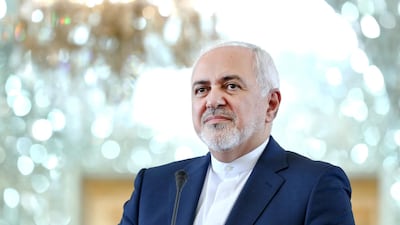The Iran nuclear deal contains detailed clauses providing for "snapback" sanctions on Tehran in case of violations. However, European reluctance and Russian and Chinese support for Tehran could hamper implementing the literal text of the agreement.
Most UN sanctions on Iran were removed in January 2016 when the deal – officially called the Joint Comprehensive Plan of Action (JCPOA) – was implemented. The accord was signed in 2015 by Iran, the five permanent UN Security Council members and the EU, but the US pulled out last year.
Under the deal's dispute process, Iran could argue that the US withdrawal and subsequent sanctions campaign "constitutes significant non-performance" and "treat the unresolved issue as grounds to cease performing its commitments".
Iran also could argue a breach of its commitments is not a violation because, under a separate provision, the agreement says: "Iran has stated that it will treat such a re-introduction or re-imposition of the sanctions ... or such an imposition of new nuclear-related sanctions, as grounds to cease performing its commitments under this JCPOA in whole or in part."
If any of the European parties to the deal – Britain, France and Germany – trigger a dispute resolution process, which could take at least 65 days, the result could be the Security Council reimposing sanctions on Iran under the following scenario.
As first step the issue would be referred to a joint commission comprised of Iran, Russia, China, Germany, France, Britain and the EU. If there is no resolution after 15 days the issue would go to the foreign ministers of these countries. A three-member advisory board could also examine the issue. The participants to the dispute would each appoint a member and the third member would be independent.
If the issue is not resolved the joint commission can take into consideration the opinion of the advisory board. If the complaining party is not satisfied and considers the matter to "constitute significant non-performance", they could "treat the unresolved issue as grounds to cease performing its commitments under this JCPOA in whole or in part".
They also could notify the Security Council that the issue constitutes "significant non-performance". The council must then vote on a resolution to continue Iran's sanctions relief.
If such a resolution has not been adopted within 30 days, the sanctions in all past UN resolutions would be re-imposed – hence the term snapback – unless the council decided otherwise. The sanctions would apply retroactively on contracts signed by Iran.

